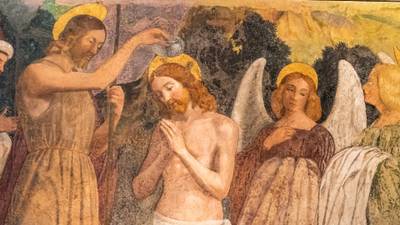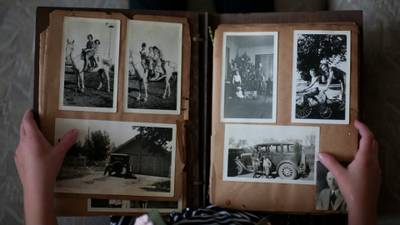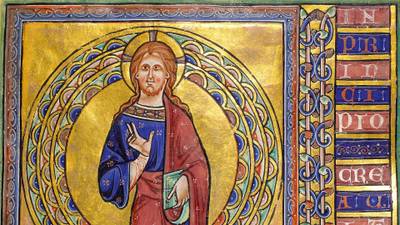Earn a postgraduate degree in Cultural Memory, Heritage and Society, 100% online.
Join us online and build your academic skills in memory, heritage and social studies.
In this flexible online degree, you’ll study two core modules then choose from a range of interdisciplinary courses to shape your learning.
Connecting past and present
The first core module introduces important concepts, concerns, and current approaches to heritage and memory transmission.
In this, you’ll cover case studies ranging from the Holocaust to postcolonialism and across geographical and socio-political contexts.
Explore the power of media
In the second module, you’ll focus on the role played by media in visualising history and memory.
You’ll examine how a wide range of media – from photography to monuments, comics to cinema – shape our understanding of the past.
Tailor your learning
You’ll then choose from a diverse selection of courses and a dissertation that allow you to focus your studies and research on areas that interest you.
An interdisciplinary qualification
This online degree is delivered by academic experts from the Schools of:
- Language, Literature, Music and Visual Culture
- Divinity, History, Philosophy and Art History, and
- Social Science.
Degree options can be taken across different disciplines, allowing you to broaden your learning experience and study with specialists in museum studies, history, cultural studies, decolonial studies, and more.
Who can join this online degree in Cultural Memory, Heritage and Society?
This distance-learning degree is open to graduates in any discipline.
It’s ideal for anyone with an academic, personal, or professional interest in:
- cultural memory
- the causes, consequences, and representations of historical and contemporary events
- the museum or heritage sector.
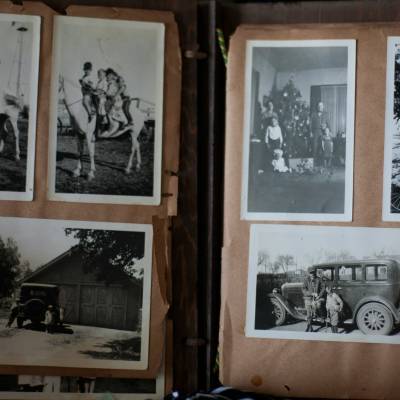
Start with a PgCert
If you’ve completed our PgCert in Heritage and Memory Studies, you’re eligible to join PgDip or MSc Cultural Memory, Heritage and Society.
View PgCert Heritage and Memory StudiesChoose the University of Aberdeen for memory and heritage courses

1st in the UK for History of Art
We’re ranked 1st in the UK for positive student responses in the 2025 National Student Survey.
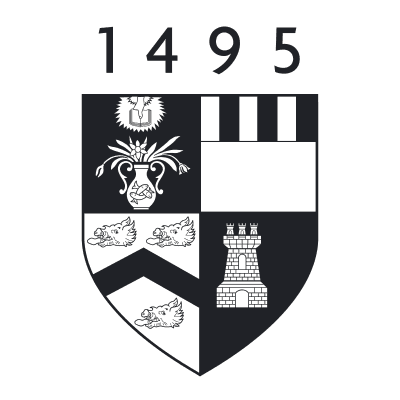
Over 525 years of excellence
Study with the fifth-oldest university in the English-speaking world, founded in 1495.

Fits around full-time work
This degree fits around full-time work, with flexible hours and 24/7 study access.
By the end of this degree, you’ll be able to...
-
Understand key theoretical frameworks in memory studies, heritage studies, and related disciplines and fields.
-
Analyse political ideologies and their real-world implications, both historically and today.
-
Analyse contemporary evolutions and tensions in memory, heritage, and social discourses, and relate these to relevant cultural contexts.
-
Integrate and apply diverse disciplinary and interdisciplinary perspectives, drawing from cultural studies, media and film studies, art history, ethnography, museum studies, and political theory.
-
Understand institutional developments, transformations, and critiques.
-
Analyse representational strategies and modalities across a broad range of media and social platforms.
What you’ll study
You can choose to study for a:
- Masters (180 credits)
- Postgraduate Diploma (120 credits), or
- start with one of the short courses that make up this degree (15 or 30 credits).
You can also start with a related PgCert:
- Students who have completed our online PgCert in Heritage and Memory Studies are eligible to join PgDip or MSc Cultural Memory, Heritage and Society.
How you’ll study
Online learning
This distance-learning degree in Cultural Memory, Heritage and Society is delivered flexibly, 100% online.
You can learn with us anywhere, no student visa required, and manage your study hours to suit you.
Your teaching
Teaching is delivered through MyAberdeen, our online Virtual Learning Environment (VLE). It holds all the materials, tools and support you’ll need in your studies. Take a look around MyAberdeen.
You can access your learning materials on computer, smartphone and laptop, 24 hours a day. You’ll find a range of online resources available, including:
- pre-recorded video lectures
- reading materials
- discussion boards with your tutors and peers
- the online resources of our award-winning Sir Duncan Rice Library.
Your tutors
This interdisciplinary degree is delivered by the School of Language, Literature, Music and Visual Culture, the School of Divinity, History, Philosophy and Art History and the School of Social Science.
You’ll learn from a diverse team of academics, from fields including cultural studies, art history, museum studies, politics, film and media studies, languages, and archaeology.

Dr Fransiska Louwagie
Fransiska is a Senior Lecturer in French and Francophone Studies. She holds a PhD in French (post-) Holocaust literature.
Fransiska’s research combines literary studies with a range of interdisciplinary perspectives. In particular, she has worked on survivor narratives and the representation of the Holocaust in contemporary Francophone fiction and comics. She also works on other contexts, such as Rwanda and South Africa.
She has undertaken various research collaborations in the field of drama and the visual arts, particularly graphic novels, post-Holocaust art and political cartooning.
View Fransiska’s profile
Dr Hans Hönes
Hans is a Senior Lecturer in Art History. He also coordinates our MA in Art History.
Hans is a leading researcher in the field of art historiography and art theory. Much of his work addresses the history of humanities more broadly.
Hans has published extensively on art historiography since the eighteenth century, and has written and edited books on Heinrich Wölfflin, eighteenth-century antiquarianism, and art history and migration.
View Hans’ profileThis degree is assessed online.
We’ll use several types of assessment throughout your studies, including:
- individual design projects
- critical reviews
- essays, and
- presentations.
Hours for taught courses
If you plan to study part-time, we recommend you take no more than 30 credits per term.
30-credit courses
- Around 300 hours of study and assessment time to complete.
- You’ll study 15 – 20 hours per week per term, plus more at assessment times.
15-credit courses
- Around 150 hours of study and assessment time to complete.
- You’ll study 8 – 10 hours per week per term, plus more at assessment times.
This is an indicative guide to the time required for a typical student at this level to achieve the learning outcomes. This includes time for independent study, as well as teaching and assessments.
You can largely set your own study hours each week to cover the materials. MyAberdeen is available 24/7, so you can log in and study when it suits you.
Activities at fixed times
There may be some activities scheduled at a fixed time, such as online meetings with your tutor or assessments with deadlines. But otherwise, you can access and work through each course at your convenience.
Hours for 60-credit projects and dissertations
A 60-credit project or dissertation is around 600 hours of study time.
This is around one term of full-time study.
You’ll dedicate a full term to your project or dissertation and work on it full-time.
Our first-class support structure will ensure that you aren’t alone in your studies. You’ll have contact with your coordinator via email, MyAberdeen and Microsoft Teams. You can use social media and discussion boards to chat with your fellow students too.
We provide a wide range of services to support you in your studies and beyond:
- Careers and Employability Service
- Disability support
- IT support
- Library support
- Student Support Service – help with finances, wellbeing, and non-academic issues
- Student Learning Service – study skills support and advice
- Aberdeen University Students’ Association (AUSA) – run by students for students
- Toolkit – clever apps and free training that can make your study life easier
Wherever you are in the world, you’ll feel part of our very special Aberdeen learning community.
When you study with us, you can expect a first-class support structure so that you’re never alone in your studies.
But learning online does mean you have to motivate yourself and manage your own time.
Your most important commitment will be time – the time to work through, reflect on and understand your teaching materials.
Before you start a course that involves a high degree of independent study, we recommend looking at the time you will be able to devote to your studies each week:
- Be realistic
- Create a weekly schedule as a guide
If you have any questions about studying online, get in touch with our friendly team. We’re here to help.
We’re a member of the Access scheme run by the Society of College, National and University Libraries (SCONUL).
Access study spaces, books and journals in your area
The SCONUL Access scheme allows you, as a University of Aberdeen student, to access books and resources at university libraries across the UK and Ireland, or visit them for a quiet place to study.
You’ll be able to use study spaces, books and journals at over 150 university libraries which belong to the scheme.
Your support team
Our friendly team are here to answer any queries you have before, during and after your studies.

Dr Fransiska Louwagie
Fransiska is co-coordinator for this programme. She’ll be on hand to answer any questions about course content before you start, and to help you throughout your studies.

Dr Hans Hönes
Hans is co-coordinator for this programme. He’ll be on hand to answer any questions about course content before you start, and to help you throughout your studies.

Thomas Connolly
Thomas is a Lead Administrator for the School of LLMVC. He and his team will be there throughout your studies to answer any of your non-academic queries.

Get in touch
The online education team is here to answer any questions you have right now about this qualification, or about studying online.
Ask us a questionWhere this will take you
Your MSc in Cultural Memory, Heritage and Society
You’ll graduate with a respected MSc in Cultural Memory, Heritage and Society from the University of Aberdeen, one of the UK’s six ancient universities.
You’ll receive exactly the same qualification online as you would on campus. Your degree title will not mention online or distance learning.
Your postgraduate qualification will be recognised by employers and learning institutions around the world.
Careers
This degree opens up a range of career prospects for graduates looking to work across cultural and disciplinary boundaries.
It’s valuable learning at Masters level, ideally suited to roles within:
- research
- academia
- heritage
- museums
- teaching
- journalism
- television and radio broadcasting
- tourism
- NGOs
- non-profit organisations
- international business
- marketing, and
- the civil service.
Further study
This degree is also great preparation for further postgraduate studies in this area, including doctoral studies.

Lifelong career support
Our career support doesn’t stop when you graduate.
You have access to our free careers service while you study, and beyond.
- 1:1 appointments
- CV checks
- Interview prep
- Job opportunities
Fees and funding
Tuition fees typically increase each year. A 3% fee rise has been confirmed for academic years 2026/27, 2027/28 and 2028/29.
Our indicative costs include a 3% fee rise each year.
Pay as you go
This is a pay-as-you-go qualification.
You do not have to pay the full tuition fee upfront.
You can spread the cost and pay as you go, term by term.
How it works
- You decide how many credits to study for each term.
- At the start of term, you pay only for the credits you’re taking that term.
- This gives you control over your costs and workload for each term of your qualification.

Your personalised cost breakdown
Use the degree scheduler to plan your studies and see your cost breakdown, term by term.
Learning resources
Access to all the books and resources you need are included in your tuition fee. They’ll be made available to you online and you do not have to buy your own copies.
Printing
You may wish to set aside a small budget for printing, depending on how you like to work.
There are several ways you may be able to get help funding your studies:
- Employer sponsorship – we accept full and partial fee payments from sponsors
- Student loans
- Scholarships – search our funding database for scholarships
Find out more about funding options.
Student card
All our students are entitled to a University of Aberdeen student card. This gives you access to a range of student discounts around the city and online.
20% Alumni discount
You’re entitled to 20% off our postgraduate taught degrees and short courses if you have a degree from the University of Aberdeen. View Alumni discount details.
How discounts work
Discounts are applied during your application process. You can only use one discount per application.
Choose the University of Aberdeen for flexible online qualifications

You’re in expert hands
We’ve been delivering online and distance learning for decades.

Learn anywhere
On smartphone, desktop and laptop, with no need for a student visa.

20% alumni discount
University of Aberdeen graduates enjoy 20% off postgraduate online short courses and degrees.
Entry requirements
MSc, PgDip
The minimum entry requirements are:
- a 2:2 UK honours degree (or equivalent) in a relevant subject.
You’re also welcome to apply if you have:
- other relevant qualifications, and
- relevant professional experience or interests.
Short course route to MSc Cultural Memory, Heritage and Society
If you do not meet these entry requirements, or are not ready to commit to a full MSc, you may be able to use our online short courses as a route into the degree instead.
Find out about our short course route to entryEntry requirements
We welcome students from all over the world.
See the minimum entry requirements above. If you do not have qualifications from the UK, check equivalent qualifications from your country.
Visa requirements
You do not need a student visa to study online with us.
English language requirements
Teaching is delivered in English.
If English is not your first language, use our English requirements checklist to see if you need to provide evidence of your English language skills when you apply.
English language tests and scores
If you do need to provide English language test scores, these are the tests and minimum scores we accept.
These are our Postgraduate Higher requirements.
IELTS Academic, IELTS UKVI Academic, or IELTS Online (not IELTS Indicator or IELTS General Training)
- 6.5 overall
- 5.5 for listening and speaking
- 6.0 for reading and writing
TOEFL iBT or TOEFL iBT Home Edition
- 90 overall
- 17 for listening
- 21 for reading
- 20 for speaking
- 21 for writing
- TOEFL DI code is 0818
Cambridge English: B2 First, C1 Advanced, or C2 Proficiency
- 176 overall
- 162 for listening and speaking
- 169 for reading and writing
LanguageCert Academic / LanguageCert Academic SELT
- 70 overall
- 60 for listening and speaking
- 65 for reading and writing
Oxford ELLT Digital – English Language Level Test Online
- 7.0 overall
- 5.0 for listening and speaking
- 6.0 for reading and writing
PTE Academic (online test not accepted)
- 62 overall
- 59 for listening, reading, speaking and writing
Skills for English: SELT
- B2 pass with merit
Duolingo – tests taken from 1 July 2024 onward
- 120 overall
- 95 for listening and speaking
- 105 for reading and writing
University of Aberdeen English Pre-sessional Programme (PSE)
- Pass
- Valid for one year. Refresher can be offered if out of date
Pre-sessional academic English preparation programmes undertaken at other UK universities
- Pass at an equivalent of 6.5 (C1)
- B2 in all four skills
- Certification must be within one year prior to the start of your course
For more information about language qualifications see our English Language Requirements page.
You can apply to start in either September or January.
Apply as early as you can. This is so we have time to review your application and get a decision to you. We also want to ensure you have time to enrol before teaching starts.
September 2026 intake
For our September 2026 intake, the application deadline is 6 September 2026.
You will need to accept your offer and provide any outstanding documents to meet the conditions of your offer by 13 September 2026.
Teaching starts on 21 September 2026.
January 2027 intake
Teaching starts on 25 January 2027.
Application deadlines will be announced in due course.
You apply through our online Applicant Portal. It allows you to upload relevant qualifications and documents.
There is no application fee for our online programmes.
What you need to apply
- Degree transcript
- Personal statement
Apply now
Start with our step-by-step guide. It explains degree transcripts, what to write in your personal statement and how to use our Applicant Portal.
You will need access to:
A computer (PC, laptop or Mac) with an up-to-date operating system
Most teaching materials are smartphone- and tablet-friendly. But we recommend a proper laptop or desktop for completing assignments comfortably.
Reliable internet access
We recommend:
- a wired connection
- a minimum download speed of 2 Mbps so you can take part fully in live sessions.
Speakers or headphones
- We recommend a headset with built-in microphone and earphones if you’re likely to study in an environment with background noise.
- A webcam is optional, but you may like to use one for some interactive sessions.
Software
We’ll give you access to Office365 applications. This means you can use online versions of Microsoft Word, Excel, PowerPoint and OneDrive and install these programs on up to five personal devices.
If your course requires specialist software, we’ll provide you with access to this and a licence that lasts throughout your studies.
See our detailed IT requirements for more information.
Try our degree scheduler

Choose your courses
See all the courses that are part of this degree and choose what you want to study.

Manage your study schedule
Control the pace and cost of your degree. Decide how much you want to study each term.

Save to your wishlist
Save your schedule to your wishlist so you can view and edit anytime.
Master of Science
180 credits
£10,060
This indicative cost is based on 180 credits of study over two years, starting in September 2026.
Postgraduate Diploma
120 credits
£7,200
This indicative cost is based on 120 credits of study over two years, starting in September 2026.
Start with a short course
£1,810
This indicative cost is based on 30 credits of study in the 2026/27 academic year.
Apply for this programme
- Start month
- September or January
- Indicative cost
- £10,060
This indicative cost is based on 180 credits of study over two years, starting in September 2026.
Apply via our Applicant Portal
